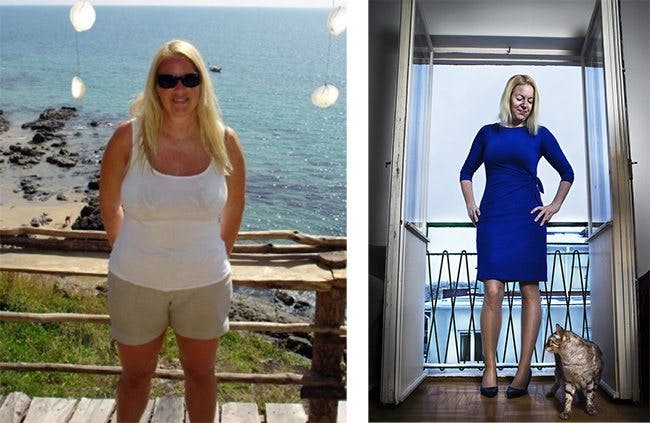Losing 55 lbs on LCHF without hunger or running

In a Swedish paper you can read about Veronica Brodin, who lost 55 lbs when she switched to an LCHF diet. Since then, without any problems or hunger, she has kept her new weight for two years. This was in contrast to earlier, more painful weight loss efforts. She says:
I feel rather tricked having spent so many years thinking that you have to be hungry and run every day in order to lose weight.
More and more people realize that you can obtain a good weight without being unnecessarily hungry. And that exercise is a voluntary bonus. This is why some call it the pleasure method.
- The article: Went on diet after seeing vacation pictures (Google-translated from Swedish)
- Veronica is blogging at Kostvagen.se (Google-translated from Swedish)
Share your story
Do you have a success story you want to share? Send your information, plus before and after photos, to success@dietdoctor.com. It would also be greatly appreciated if you shared what you eat in a typical day, whether you fast etc. More information:
Share your story!